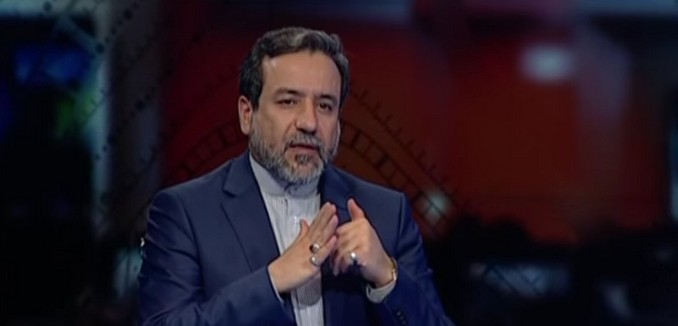Iran’s Deputy Foreign Minister for Legal and International Affairs Seyyed Abbas Araqchi said Monday that there would be no deal between the P5+1 and Iran if the latter’s “demands are not met,” and that recent sanctions targeting the Islamic republic “violate the Geneva interim deal.”
Iran’s official PressTV news agency reports:
On August 29, the US government announced the imposition of the new round of sanctions on over 25 individuals and companies, including shipping firms, oil companies, airlines and six banks despite the fact that Iran and the six world powers are in the process of talks with the intention of resolving the West’s nuclear standoff with Iran.
He added that it will only be possible to reach a nuclear agreement by the November deadline if everyone remains committed to the objective of the negotiations.
The State Department’s announcement of sanctions explained why two of the companies were named:
Jahan Tech Rooyan Pars (Jahan Tech) and Mandegar Baspar Kimiya Company (Mandegar Baspar) are Iran-based entities involved in the procurement of proliferation-sensitive material, specifically carbon fiber, for proscribed elements of Iran’s nuclear program. Since early 2010 and as recently as 2013, Jahan Tech and Mandegar Baspar have attempted to procure high-strength carbon fiber from Asia-based suppliers, some of which is controlled for export pursuant to the Nuclear Suppliers Group (NSG) Guidelines and is proscribed for export to Iran by UNSCR 1737. Among other uses, high-strength carbon fiber is suitable for the production of advanced centrifuge rotors, as well as for forming components that increase the range and payload capability of ballistic missiles. The Panel of Experts established pursuant to UNSCR 1929 (2010) noted in its May 2014 report that Iran has been attempting to procure high-grade carbon fiber for use in manufacturing of some of its centrifuge rotors. The Washington Post in 2013 documented Jahan Tech’s efforts to acquire 100,000 highly specialized magnets used in centrifuge machines – a quantity that could outfit 50,000 new centrifuges. Iranian private sector firms should heed the risks incurred by conducting business with those who support Iran’s proscribed nuclear activities and choose to focus their activities on legitimate international commerce. The United States will continue to investigate additional companies making material contributions to the Iranian government’s proliferation of weapons of mass destruction or their means of delivery.
The companies were sanctioned on account of their acquiring products that violated terms of United Nations Security Council Resolution 1737 (.pdf), which prohibits Iran from acquiring “additional items, materials, equipment, goods and technology … which could contribute to enrichment-related … activities.” As the The Institute for Science and International Security (ISIS) explained in a report (.pdf) released this week, “the evidence indicates that in fact this company was acting to procure illegally sensitive centrifuge-related goods for the Iranian centrifuge program.”
Rather than violating last year’s Geneva agreement, as Araqchi charged, the sanctions were a response to Iran’s attempt to circumvent internationally agreed upon limits on its nuclear program.
[Photo: PressTV News Videos / YouTube ]




